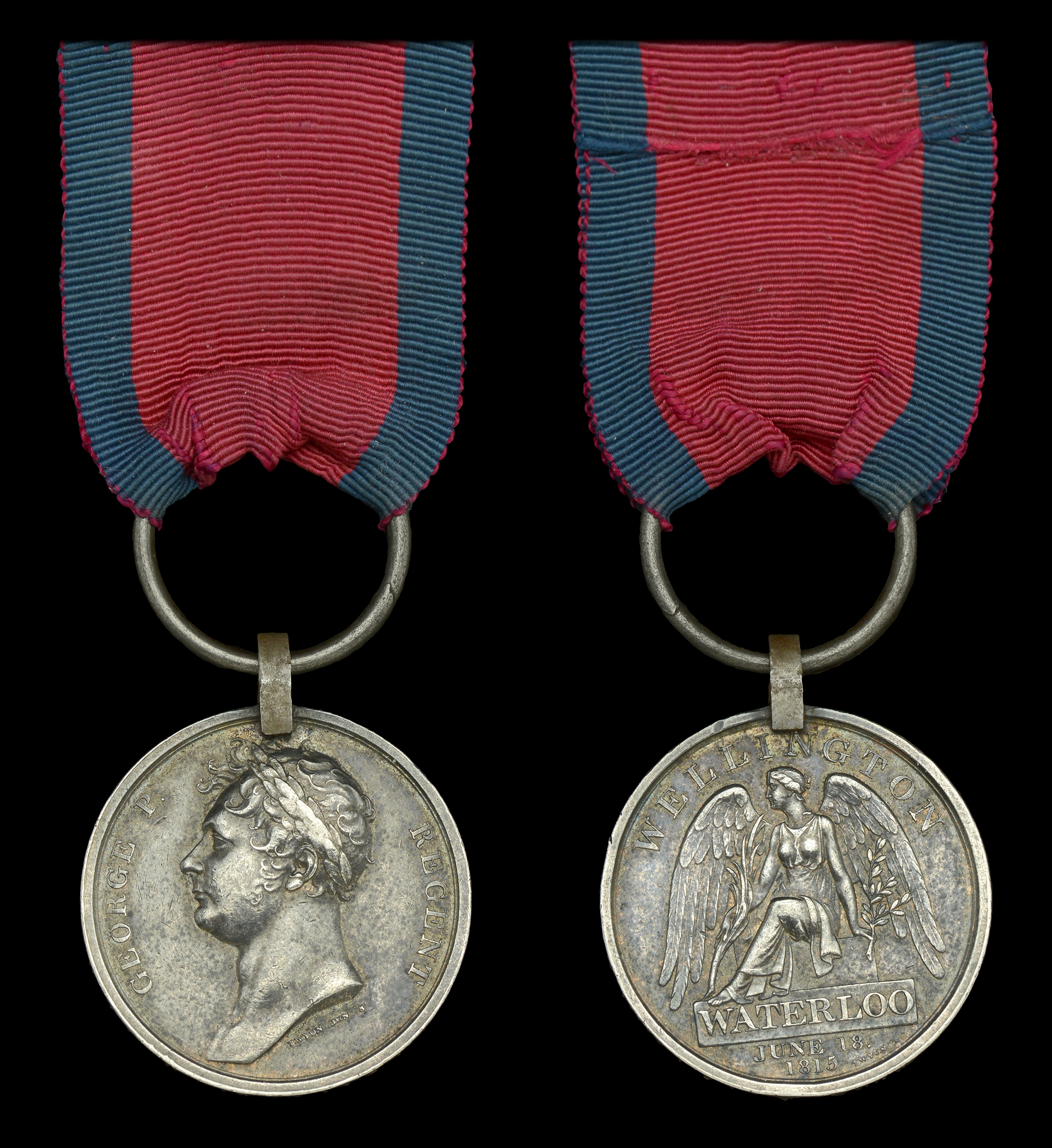The Waterloo medal awarded to Corporal Francis Donliavy, 2nd Battalion, 69th Foot, who was severely wounded by a musket ball in the chest at Quatre Bras which despite surgery ‘remained undiscovered’ Waterloo 1815 (Corp. Francis Donliavy, 2nd Batt. 69th Reg. Foot.) fitted with original steel clip and ring suspension, light edge bruise and minor contact marks, otherwise good very fine £2,800-£3,400 --- Provenance: Glendining’s, July 1943; Christie’s, New York, April 2003. Francis Donliavy (variously spelt Donleavy, Donlavey, Dunlavy, Dunlevy, Dunleavy) was born circa 1790 in Baleek, County Fermanagh, Ireland, and enlisted into the Fermanagh Militia on 19 August 1809. He volunteered to join the 2nd Battalion of the 69th Regiment on 2 October 1812, receiving a levy of £7-7-0d, stating his occupation as a weaver. He served on the ill-fated expedition to Holland, taking part in the attack on Bergen-op-Zoom, when the army was forced to retreat with considerable losses due to a successful counter attack by the French. The 69th remained in Holland at various stations including Antwerp, Courtray and Ypres. Donliavy was promoted to Corporal on 25 December 1814. The regiment was next in action at Quatre Bras on 16 June 1815. Donliavy was in Captain Cox’s No. 1 company when they were attempting to form square against French heavy cavalry, too late and with terrible consequences including the loss of the King’s colour to a French cuirassier. The 69th had 38 killed and 115 wounded, including Corporal Donliavy. He was discharged to Chelsea pension on 9 August 1816, having been found unfit for further service in consequence of ‘receiving a Gun Shot Wound of the Left Side in action with the enemy on the 16 June 1815 at Quatre Bras.’ Pension noted as 6d per day. He is mentioned in Surgeon James Guthrie’s book Commentaries on the Surgery of the War in Portugal, Spain, France and the Netherlands, George James Guthrie, London, 1855: ‘Corporals Bell, Dunleavy (sic) and Sweeney were all from Fermanagh. Bell and Sweeney were 27 years old whilst Francis Dunleavy was 24. Wounded at Quatre Bras by a musket ball in the chest, Corporal Dunleavy was not tended until 19th June, during which time he stated he had been vomiting a great quantity of blood. He was then subjected to substantial bleeding by the surgeons, 42 ounces being removed from him before the 19th June, and 92 ounces over the following six weeks. He was also given saline purgatives and kept on a strict milk diet. It is a testament to the resilience of the man that he survived all this and was sent back to England on the 31st of August “declaring himself quite as well as he had been in his life.”’ In the Sixth edition of Guthrie’s book, published in 1862, he expanded on the medical details and added ‘the ball remained undiscovered’. Sold with copied discharge papers, full muster details and comprehensive research.
Auctioneer's Buyers Premium: 24% (+VAT)
There is an additional charge of 4.95% (+VAT/sales tax)
See Full Terms And Conditions





